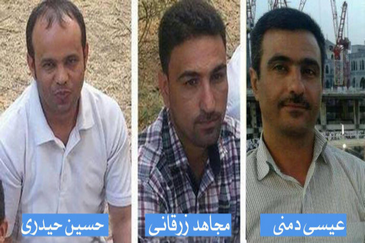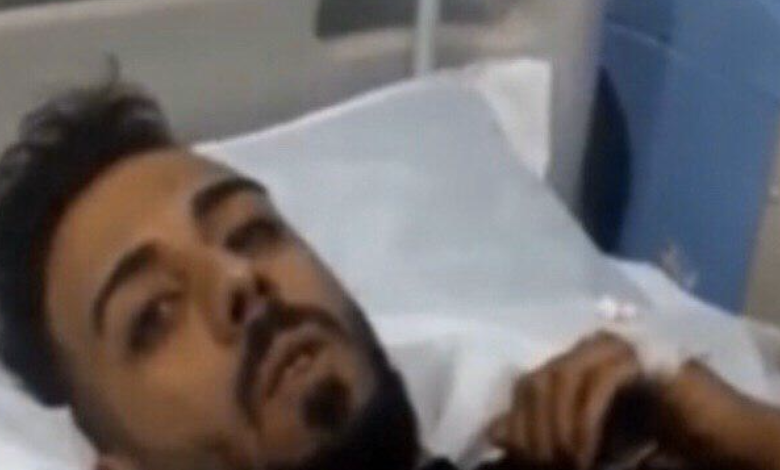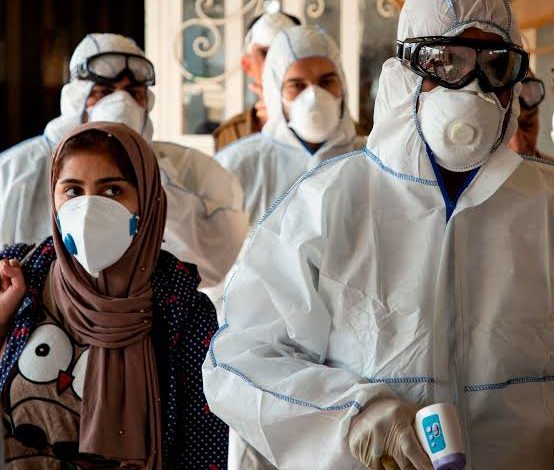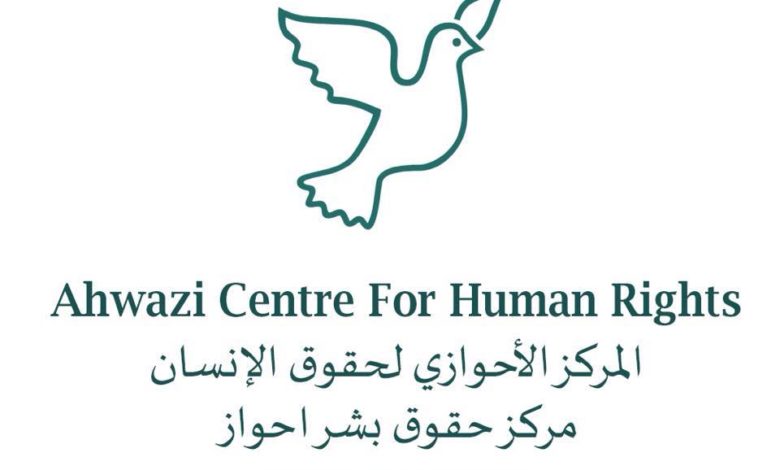Iran’s election sham foreshadows ominous times ahead

Just two weeks after the sham election result which provided an opportunity for the regime to revitalise and breathe again, its medieval revolutionary courts have restarted their man-slaughtering exploits with a vengeance by running group executions, mass arrests, and imprisonment.
As a blatant act of defiance and challenge to the world, the regime’s killing machine embodied in its judicial system has demonstrated how little the regime considers itself bound by international treaties or need to reform.
As part of these regime activities, according to Ahwazi rights groups inside Ahwaz, three Ahwazi activists, one of them a journalist, Issa Domni, 43; have been sentenced to one-year imprisonment plus exile by the revolutionary court number 4 in Ahwaz city.Reportedly, these activists were arrested at their homes by the Iranian regime’s intelligence forces on Monday, 16 January 2017 and went under interrogation and torture to confess to the fabricated accusations that were provided to them by the security officers.Their trial was held on 25th May in the Ahwaz Revolutionary Court in front of the notorious judge Pour-Mohammadi while they were denied access to an attorney to represent them during their trial.They were tried on a number of trumped-up charges such as ‘acting against the regime through establishing non-governmental charities’.
Issa Domni, a father of two children, has received a one-year sentence to be served in exile at Tekab city prison in the northwest of Iran. Issa Domni is a leading Ahwazi civil and educational personality with an academic background, a teacher, who had great presence and spoke often in local and national seminars and other events about diversity, tolerance and the advancements of society. In his spare time, Issa ran free Arabic classes for local Ahwazi children, teaching them reading and writing in their officially banned mother tongue, Arabic.
Another victim was Mojahed Zergani, 36, a father of one child, also sentenced to one-year imprisonment. Mojahed is an eloquent poet and used to enrich the cultural and traditional Ahwazi events, officially banned and prohibited by the regime, with his poems that encourage Ahwazis to be peace-loving, strengthening their sense of human rights and identity. Mojahed also used to study Arabic and literature in university and at the same time ran a charity shop to help support poor and destitute families. Another convicted Ahwazi is Naji Haidari, 38, a father of two children, who used to teach in a State-sponsored school as well as being an Arabic translator. Naji has been awarded and honoured as one of best Arabic teachers in the region.
Karim Dahimi, a prominent Ahwazi rights advocate, told Ahwaz Monitor that “the only crime committed by these Ahwazi Arab activists who recently arrested, imprisoned, and exiled was adhering to their own ethno cultural identity. He added, as an example, Gerga’oon is marked by children dressing in traditional attire and going door-to-door to receive sweets and nuts from neighbours, whilst also singing traditional songs”. “The custom has existed in Ahwaz, as in other Arab regions across the Middle East for hundreds of years and is deeply rooted in the culture of Ahwazi Arabs, but the Iranian regime seems unhappy with it due to concerns that it may remind Ahwazi children of their Arab identity, which Iran views it as a threat to the theocratic regime’s national security and therefore it simply cracks down on Ahwazi Arab activists who intend to hold it in the region”. “The Islamic Republic regime, with reactionary and repressive policies, is unable to tolerate even a little cultural activism undertaken by Ahwazi Arab activists”. “They use paranoid suspicions and false accusations to outlaw any activity that strives to preserve the customs, traditions, and culture of the Ahwaz Arab people”.
In a related case, the Iranian Intelligence Service of Ahwaz has summoned an Ahwazi Arab woman who is engaged in cultural activism. She is the manager of Nawares Hanaa Khorsan Cultural Group. The 35-year-old activist named Noora was summoned due to her efforts to revive an Ahwazi cultural ceremony named Gerga’oon. Dahimi asserted that “the Persian officials in Ahwaz who are operating in security agencies like the Intelligence Bureau hold extremely anti-Arab sentiments. They view the Ahwazi Arabs, not as fellow humans, but simply as security threats. As a result, the Iranian regime has sought to assimilate all the none-Persian ethnic nationalities, including the Ahwazi Arab people, by taking efforts to disband such cultural traditions. This is the biggest challenge that the Ahwazi Arab cultural activists in Ahwaz regional capital and other Arab cities are facing”, Dahimi added.
Ruth Riegler, a Scottish writer-editor, and freedom activist, said that “It shows the Iranian regime is getting desperate; they forget that you can only tighten the lid on a pressure cooker so often before it explodes. This is Rouhani, Obama’s ‘moderate reformist’ ally – the man who executed more than any other leader in his first four years, the man who’s led war across the region. Anyone who allies with him and this brutal regime is an accomplice in these crimes against humanity.”
These unjustified and unlawful verdicts issued against these Ahwazi civil activists indicate that, despite the international community’s optimism about Rouhani’s pledges, the outcome of the presidential election will not bring any hope or dialogue to the people of Iran’s diverse society and ultimately a popular uprising and revolution will be inevitable.
C: Rahim Hamid
S: aLiBz




